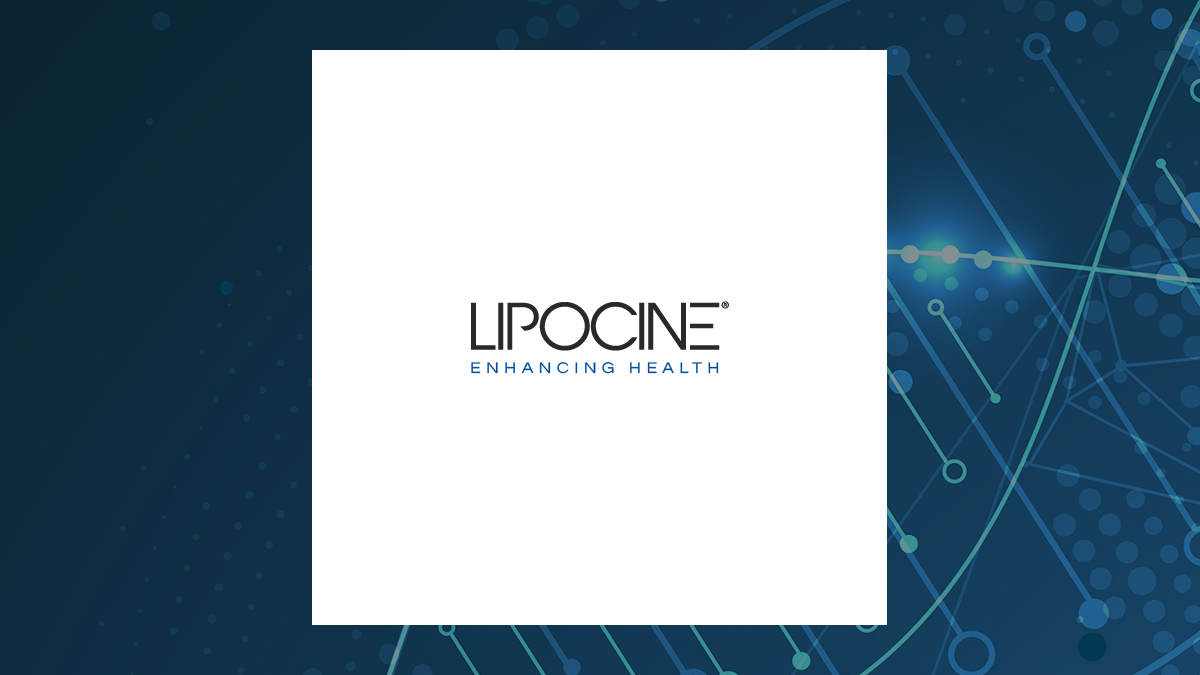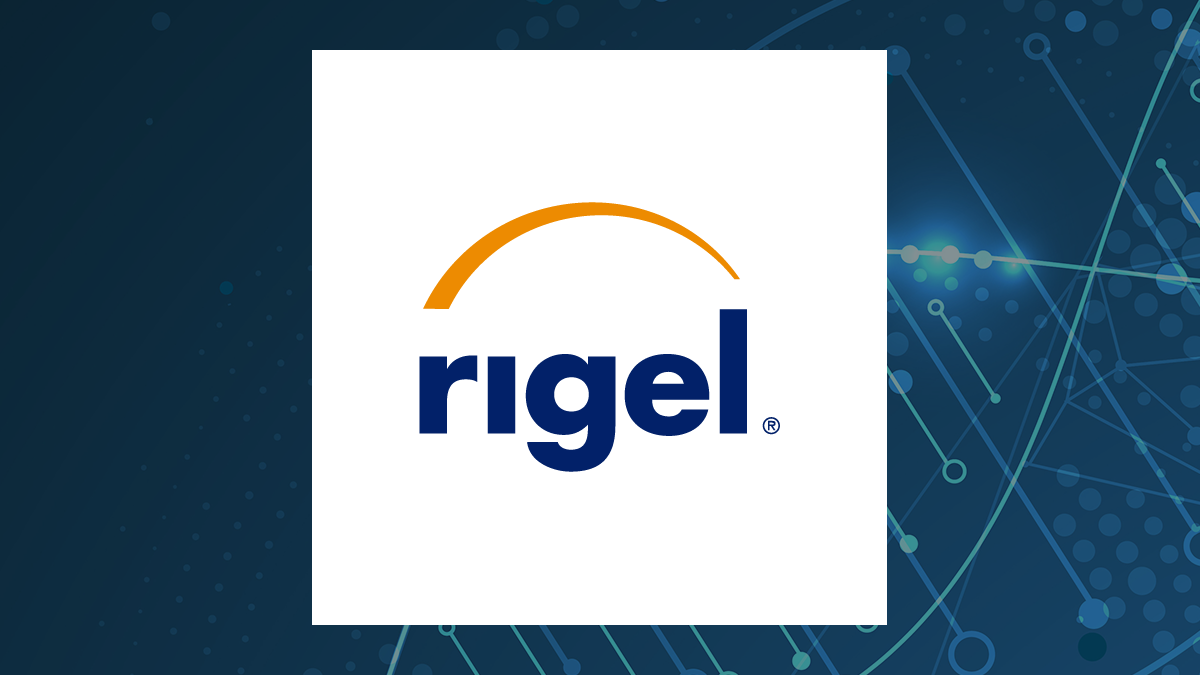Lipocine (NASDAQ:LPCN – Get Free Report) and Rigel Pharmaceuticals (NASDAQ:RIGL – Get Free Report) are both small-cap medical companies, but which is the superior business? We will compare the two businesses based on the strength of their risk, institutional ownership, dividends, valuation, earnings, profitability and analyst recommendations.
Profitability
This table compares Lipocine and Rigel Pharmaceuticals’ net margins, return on equity and return on assets.
| Net Margins | Return on Equity | Return on Assets | |
| Lipocine | N/A | -23.59% | -21.91% |
| Rigel Pharmaceuticals | 36.51% | 438.89% | 57.03% |
Earnings and Valuation
This table compares Lipocine and Rigel Pharmaceuticals”s top-line revenue, earnings per share and valuation.
| Gross Revenue | Price/Sales Ratio | Net Income | Earnings Per Share | Price/Earnings Ratio | |
| Lipocine | $11.20 million | 1.47 | $10,000.00 | ($0.87) | -3.49 |
| Rigel Pharmaceuticals | $179.28 million | 4.14 | $17.49 million | $5.41 | 7.65 |
Rigel Pharmaceuticals has higher revenue and earnings than Lipocine. Lipocine is trading at a lower price-to-earnings ratio than Rigel Pharmaceuticals, indicating that it is currently the more affordable of the two stocks.
Analyst Ratings
This is a breakdown of current ratings for Lipocine and Rigel Pharmaceuticals, as provided by MarketBeat.
| Sell Ratings | Hold Ratings | Buy Ratings | Strong Buy Ratings | Rating Score | |
| Lipocine | 0 | 0 | 1 | 1 | 3.50 |
| Rigel Pharmaceuticals | 0 | 3 | 2 | 0 | 2.40 |
Lipocine presently has a consensus price target of $9.00, suggesting a potential upside of 196.05%. Rigel Pharmaceuticals has a consensus price target of $38.20, suggesting a potential downside of 7.64%. Given Lipocine’s stronger consensus rating and higher probable upside, equities research analysts plainly believe Lipocine is more favorable than Rigel Pharmaceuticals.
Insider and Institutional Ownership
9.1% of Lipocine shares are held by institutional investors. Comparatively, 66.2% of Rigel Pharmaceuticals shares are held by institutional investors. 6.4% of Lipocine shares are held by insiders. Comparatively, 9.5% of Rigel Pharmaceuticals shares are held by insiders. Strong institutional ownership is an indication that hedge funds, large money managers and endowments believe a company is poised for long-term growth.
Risk and Volatility
Lipocine has a beta of 1.24, meaning that its share price is 24% more volatile than the S&P 500. Comparatively, Rigel Pharmaceuticals has a beta of 1.21, meaning that its share price is 21% more volatile than the S&P 500.
Summary
Rigel Pharmaceuticals beats Lipocine on 11 of the 15 factors compared between the two stocks.
About Lipocine
 Lipocine Inc., a clinical-stage biopharmaceutical company, engages in the research and development for the delivery of drugs for the treatment of central nervous system (CNS) disorders. Its lead product candidate is TLANDO, an oral testosterone replacement therapy (TRT) comprising testosterone undecanoate. The company's pipeline candidates also include TLANDO XR a candidate for oral TRT for once daily dosing, which has completed Phase 2b clinical study; LPCN 1148, an oral prodrug of bioidentical testosterone, being developed for the treatment of cirrhosis, currently under Phase 2 clinical studies; LPCN 1154, An oral neurosteroid, being developed for the treatment of postpartum depression, currently under Phase 2 studies; LPCN 2101, a NAS candidate, for women with epilepsy; and LPCN 2203 for essential tremor. It is also involved in the development of LPCN 1144, an oral prodrug of bioidentical testosterone for the treatment of pre-cirrhotic non-alcoholic steatohepatitis, which has completed Phase 2 testing; and LPCN 1107, an oral product candidate of 17-alpha-hydroxy progesterone caproate product, currently under Phase 3 studies for the prevention of recurrent preterm birth. The company was founded in 1997 and is headquartered in Salt Lake City, Utah.
Lipocine Inc., a clinical-stage biopharmaceutical company, engages in the research and development for the delivery of drugs for the treatment of central nervous system (CNS) disorders. Its lead product candidate is TLANDO, an oral testosterone replacement therapy (TRT) comprising testosterone undecanoate. The company's pipeline candidates also include TLANDO XR a candidate for oral TRT for once daily dosing, which has completed Phase 2b clinical study; LPCN 1148, an oral prodrug of bioidentical testosterone, being developed for the treatment of cirrhosis, currently under Phase 2 clinical studies; LPCN 1154, An oral neurosteroid, being developed for the treatment of postpartum depression, currently under Phase 2 studies; LPCN 2101, a NAS candidate, for women with epilepsy; and LPCN 2203 for essential tremor. It is also involved in the development of LPCN 1144, an oral prodrug of bioidentical testosterone for the treatment of pre-cirrhotic non-alcoholic steatohepatitis, which has completed Phase 2 testing; and LPCN 1107, an oral product candidate of 17-alpha-hydroxy progesterone caproate product, currently under Phase 3 studies for the prevention of recurrent preterm birth. The company was founded in 1997 and is headquartered in Salt Lake City, Utah.
About Rigel Pharmaceuticals
 Rigel Pharmaceuticals, Inc., a biotechnology company, engages in discovering, developing, and providing therapies that enhance the lives of patients with hematologic disorders and cancer. The company’s commercialized products include Tavalisse, an oral spleen tyrosine kinase inhibitor for the treatment of adult patients with chronic immune thrombocytopenia; Rezlidhia, a non-intensive monotherapy for the treatment of adult patients with relapsed or refractory (R/R) acute myeloid leukemia (AML) with a susceptible isocitrate dehydrogenase-1 (IDH1) mutation as detected by an FDA-approved test; and GAVRETO, a once daily, small molecule, oral, kinase inhibitor for the treatment of adult patients with metastatic rearranged during transfection (RET) fusion-positive non-small cell lung cancer, as well as for the treatment of adult and pediatric patients 12 years of age and older with advanced or metastatic RET fusion-positive thyroid cancer. It also develops R289, an oral IRAK1/4 Inhibitor, which is in Phase 1b clinical trials for the treatment of hematology-oncology, autoimmune, and inflammatory diseases; and a receptor-interacting serine/threonine-protein kinase 1 (RIPK1) inhibitor program in clinical development with partner Eli Lilly and Company. In addition, the company has product candidates in clinical development with partners BerGenBio ASA and Daiichi Sankyo. The company has strategic development collaboration with The University of Texas MD Anderson Cancer Center for the development of REZLIDHIA (Olutasidenib) in acute myeloid leukemia (AML) and other hematologic cancers. The company was incorporated in 1996 and is headquartered in South San Francisco, California.
Rigel Pharmaceuticals, Inc., a biotechnology company, engages in discovering, developing, and providing therapies that enhance the lives of patients with hematologic disorders and cancer. The company’s commercialized products include Tavalisse, an oral spleen tyrosine kinase inhibitor for the treatment of adult patients with chronic immune thrombocytopenia; Rezlidhia, a non-intensive monotherapy for the treatment of adult patients with relapsed or refractory (R/R) acute myeloid leukemia (AML) with a susceptible isocitrate dehydrogenase-1 (IDH1) mutation as detected by an FDA-approved test; and GAVRETO, a once daily, small molecule, oral, kinase inhibitor for the treatment of adult patients with metastatic rearranged during transfection (RET) fusion-positive non-small cell lung cancer, as well as for the treatment of adult and pediatric patients 12 years of age and older with advanced or metastatic RET fusion-positive thyroid cancer. It also develops R289, an oral IRAK1/4 Inhibitor, which is in Phase 1b clinical trials for the treatment of hematology-oncology, autoimmune, and inflammatory diseases; and a receptor-interacting serine/threonine-protein kinase 1 (RIPK1) inhibitor program in clinical development with partner Eli Lilly and Company. In addition, the company has product candidates in clinical development with partners BerGenBio ASA and Daiichi Sankyo. The company has strategic development collaboration with The University of Texas MD Anderson Cancer Center for the development of REZLIDHIA (Olutasidenib) in acute myeloid leukemia (AML) and other hematologic cancers. The company was incorporated in 1996 and is headquartered in South San Francisco, California.
Receive News & Ratings for Lipocine Daily - Enter your email address below to receive a concise daily summary of the latest news and analysts' ratings for Lipocine and related companies with MarketBeat.com's FREE daily email newsletter.
